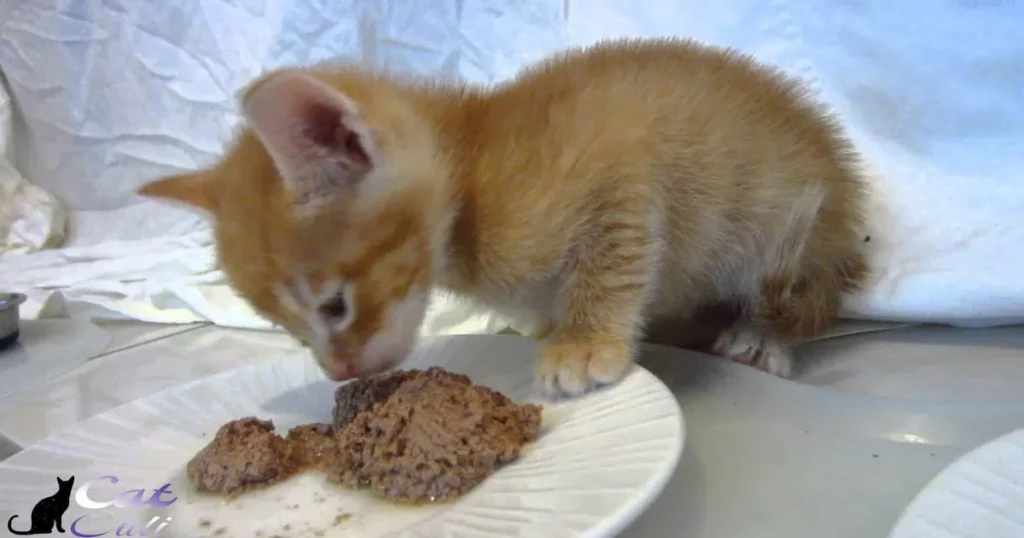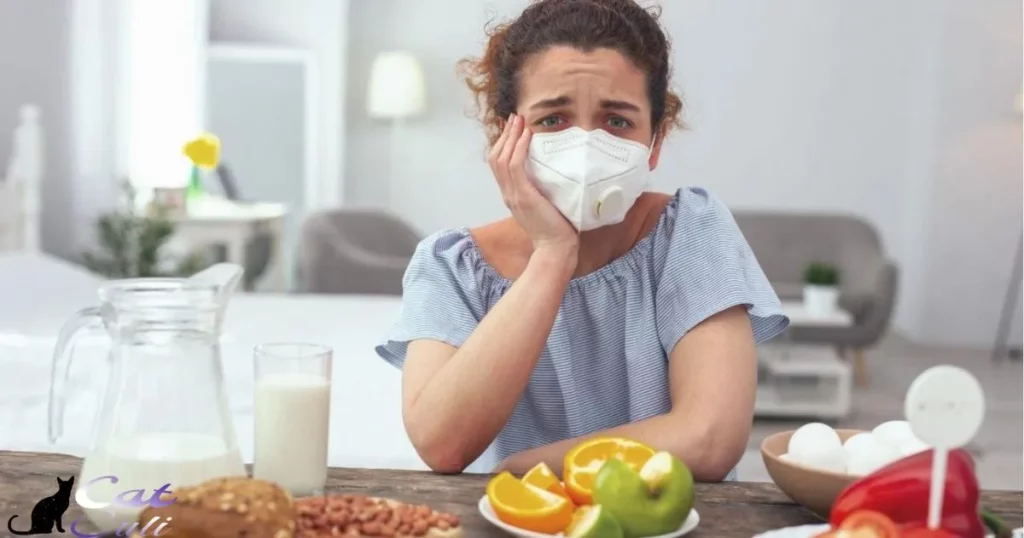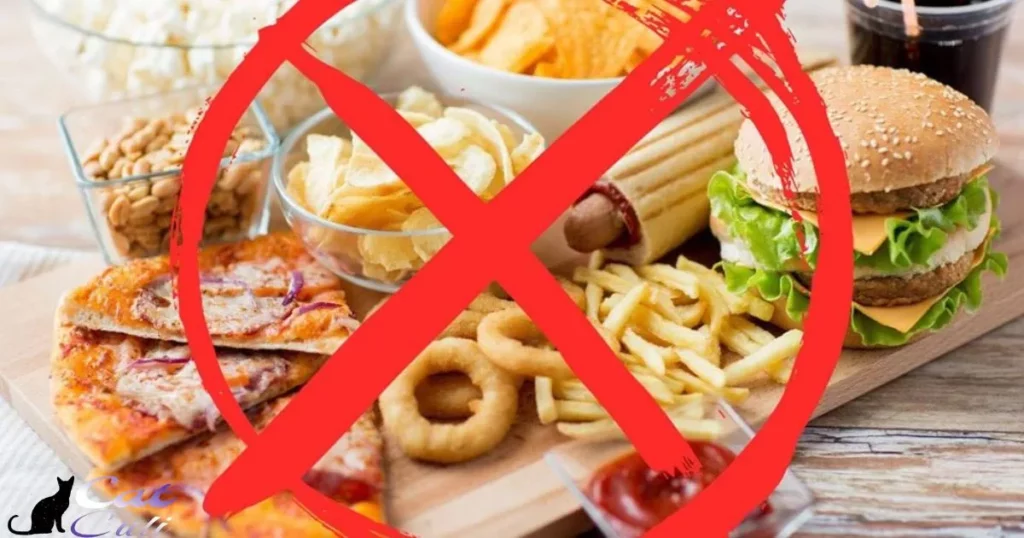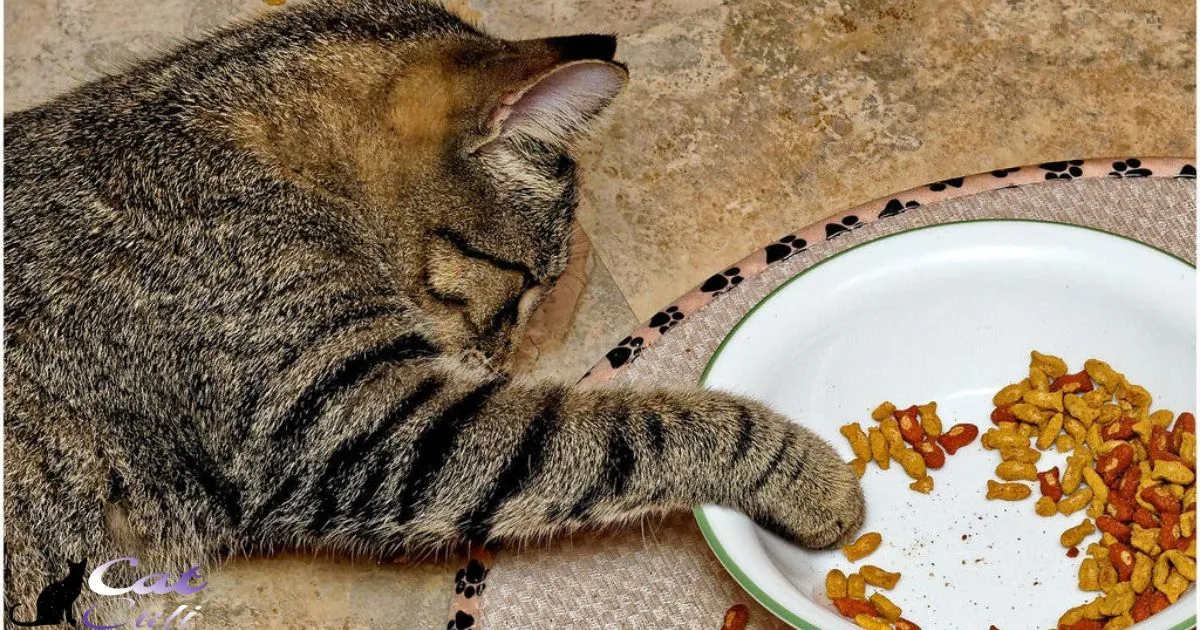Excessive wet food might lead to diarrhea in cats. This occurs due to abrupt dietary changes or overeating. Cats’ digestive systems can become sensitive to too much rich, moist food. It’s important to gradually introduce new foods and monitor portion sizes to prevent digestive issues.
Curious about your feline friend’s diet? Wondering, Can too much wet food cause diarrhea in cats? Understanding the impact of diet on your cat’s health is crucial. Let’s explore how an excess of moist meals might affect your furry companion’s digestive system and what steps you can take to ensure their well-being.
Stay with us to learn about the potential effects of excessive wet food on your feline’s digestive health. We’ll explore whether an abundance of moist meals can lead to diarrhea in cats and what you can do to keep your pet healthy.
Does wet cat food cause diarrhea?
Wet cat food might trigger diarrhea in some cats. The high moisture content in wet food can impact a cat’s digestion, leading to loose stools or diarrhea. Introducing wet food gradually and monitoring your cat’s response helps manage any potential digestive issues.
It’s essential to observe your cat’s reaction to wet food. Some cats may have sensitive stomachs and experience diarrhea when they eat too much wet food too quickly. Monitoring their intake and adjusting their diet can help prevent digestive disturbances.
Is wet food bad for cats?
Wet food isn’t inherently bad for cats. It can offer hydration and nutrients vital for their health. Feeding solely wet food might contribute to dental issues as it lacks the abrasiveness that dry food provides to teeth. Ensuring a balanced diet that includes both wet and dry food can support your cat’s overall well-being.
Cats often enjoy wet food due to its flavour and moisture content. Yet, an exclusive wet food diet may not provide the dental benefits of dry food. Incorporating a mix of wet and dry options can promote dental health while offering a varied and nutritious diet for your feline friend.
What is wet cat food?
Wet cat food is a type of pet food that comes in a moist, canned form. It usually contains higher moisture content than dry food and is made from a blend of ingredients like meat, fish, vegetables, and grains. This type of food offers cats a more palatable texture and can be beneficial for hydration due to its higher water content.
It’s commonly preferred by cats due to its stronger aroma and taste. Pet owners often choose wet cat food for its perceived benefits in supporting urinary tract health and managing weight, as well as being easier for older cats or those with dental issues to consume.
What causes diarrhea in cats?
Diarrhea in cats can have diverse origins. It might result from sudden dietary shifts or ingesting spoiled food. Allergies to specific ingredients or stressors, even parasites like worms, contribute to upset stomachs in felines. Understanding if Wet Food Cause Diarrhoea In Cats is pivotal for proper treatment and your cat’s health.
Infections or underlying health issues might result in diarrhea. Bacterial or viral infections, such as those from ingesting harmful substances or viruses like the feline parvovirus, can lead to gastrointestinal distress. Regular check-ups and maintaining a balanced diet are key to preventing such issues in your furry friend.
Difference Between Dry and Wet Cat Food
| Aspect | Dry Cat Food | Wet Cat Food |
| Moisture Content | Low (Usually 6-10%) | High (Approximately 70-85%) |
| Texture | Crunchy kibble | Soft and moist texture |
| Shelf Life | Longer shelf life | Shorter shelf life, requires refrigeration |
| Nutrient Density | Higher concentration of nutrients per serving | Lower concentration of nutrients per serving |
| Palatability | Varies, some cats prefer the crunch | Often preferred by picky eaters due to flavour |
| Hydration Support | Less hydrating, may require more water intake | Higher moisture content aids in hydration |
| Cost | Generally more cost-effective | Can be more expensive |
What Home Remedy Can I Give my Cat for Diarrhea?
If your cat has diarrhea, try a bland diet of boiled chicken or rice. These help soothe their stomachs. Ensure they drink enough water to stay hydrated. Another remedy is canned pumpkin, which aids digestion and can firm up their stools. Always consult a vet if the issue persists or worsens.
A teaspoon of plain yoghurt can also help restore the balance of good bacteria in your cat’s gut. But remember, moderation is key. It’s essential to monitor your cat’s condition closely and seek professional advice if the diarrhea persists for more than a day or two.
How to Stop Diarrhea in Cats Eating Wet Food?

If your cat has diarrhea from wet food, try these steps. First, switch to a bland diet like boiled chicken and rice to soothe their stomach. Then, slowly reintroduce their regular food to check for reactions. Ensure they stay hydrated with plenty of fresh water to ease their discomfort.
When transitioning back to wet food, opt for easily digestible options. Monitor their intake and avoid sudden changes in their diet to prevent future episodes of diarrhea. Consulting a vet for guidance on their specific needs can also help in managing and preventing digestive issues.
How can I firm up my cat’s stool?
To help firm up your cat’s stool, consider adjusting their diet. Introduce more fibre by incorporating high-quality cat food or specific supplements recommended by your veterinarian. Ensure your cat stays hydrated by providing fresh water daily. Regular exercise can also aid in regulating your cat’s digestion.
Small dietary changes, such as adding pumpkin or probiotics to their meals, can assist in firming up your cat’s stool. Monitoring your cat’s diet closely and consulting with a vet can provide tailored solutions to maintain their digestive health and ensure firmer stools.
What cat food is best for cats with diarrhea?
If your cat has diarrhea, opt for easily digestible foods like plain boiled chicken or rice. These gentle options help soothe your cat’s stomach. Look for specialized cat foods labelled digestive health or ‘sensitive stomach’ to aid in easing digestive issues.
Avoid rich or fatty foods; instead, select diets with high-quality protein and limited ingredients. Consult your vet for recommendations tailored to your cat’s specific needs. Remember, gradual dietary changes are key to managing and improving your cat’s digestive health.
Is It Normal For Kittens To Have Diarrhea
Kittens experiencing diarrhea is quite common. The transition from mother’s milk to solid food might upset their stomachs, leading to loose stools. Sometimes, parasites or sudden diet changes could also trigger diarrhea in young cats.
If your kitten shows signs of diarrhea, it’s essential to monitor their hydration levels and consult a veterinarian. With proper care and guidance, most cases of diarrhea in kittens can be managed effectively, ensuring their health and well-being.
What Causes Diarrhea In Kittens
Diarrhea in kittens often stems from sudden dietary changes or infections. New foods or milk replacements might upset their stomachs, causing loose stools. Infections, like parasites or viruses, are common culprits for diarrhea in young cats, requiring prompt veterinary attention to prevent dehydration.
Sometimes, stress or anxiety can also trigger diarrhea in kittens. Moving to a new home or changes in their environment can unsettle their delicate systems. Ensuring a stable, comfortable environment and a consistent diet helps minimize these digestive issues in young felines.
Cow’s Milk
Cow’s milk can upset a cat’s stomach. Cats lack the enzyme needed to digest lactose in milk properly. Drinking cow’s milk may result in diarrhea or an upset stomach for your feline friend. It’s best to avoid giving cats cow’s milk to prevent digestive issues.
Cow’s milk isn’t suitable for most cats. Feeding them milk can cause digestive discomfort. It’s advisable to stick to specially formulated cat milk or water as the primary sources of hydration for your pet.
Medications Side Effects
Medications can cause side effects. These effects range from mild to severe. Knowing potential side effects helps manage and mitigate any issues. Always consult a healthcare professional for guidance.
When taking medications, be aware of possible side effects. Understanding these effects aids in recognizing and addressing any discomfort. Your doctor or pharmacist can provide valuable information about medication side effects.
Food Allergies

Food allergies happen when a cat’s immune system reacts to certain ingredients in their diet. They can show signs like itching, vomiting, or diarrhea. Identifying the specific allergen through a vet can help manage the cat’s diet and alleviate discomfort.
Switching to hypoallergenic foods or a limited ingredient diet might ease symptoms. Monitoring the cat’s response to different foods helps determine what triggers their allergies, ensuring a happier, healthier pet.
New Diet
Switching to a new diet can greatly impact your health. It allows you to explore different foods and find what suits you best. Remember to take it slow and listen to your body’s signals when trying out a new diet.
Trying a new diet is an exciting journey toward healthier habits. It empowers you to make mindful choices about what you eat. Pay attention to how your body responds to the changes for a successful transition.
Can Too Much Dry Cat Food Cause Diarrhea
Feeding excessive dry cat food may trigger diarrhea in your feline friend. Overconsumption of dry food might lead to digestive issues due to its high carbohydrate content, impacting your cat’s stool consistency. Monitoring portion sizes and ensuring a balanced diet can help prevent potential digestive problems arising from an excess of dry cat food.
It’s essential to be mindful of how much dry cat food your pet consumes to avoid potential bouts of diarrhea. An overload of carbohydrates in the diet can upset your cat’s stomach, causing loose stools. Maintaining a proper feeding schedule and providing a varied diet can aid in keeping your cat’s digestive system healthy and functioning smoothly.
Can Too Much Wet Food Cause Diarrhea In Dogs
- Excessive consumption of wet food might lead to diarrhea in dogs.
- Abrupt dietary changes or overeating of moist meals can upset a dog’s digestive system.
- Dogs can develop sensitivity to rich, moist food, resulting in loose stools.
- Gradually introducing new foods and monitoring portion sizes is essential to prevent digestive issues in dogs.
- Ensuring a balanced diet and managing the quantity of wet food can maintain a dog’s digestive health.
How Long Will My Cat Have Diarrhea After Changing Food
When switching your cat’s food, diarrhea might last a few days. It’s normal for their system to adjust. Gradually transitioning over a week can help ease this. Ensure the new diet suits their stomach to minimize digestive issues.
Keep an eye on your cat’s stool after a food change. Diarrhea typically resolves within a week. If it persists or your cat shows other concerning signs, consulting a vet is wise. They can offer tailored advice for your cat’s specific needs.
Does Wet Cat Food Cause Soft Stool
Does wet cat food cause soft stool? Wet food might lead to softer stools in cats. The higher moisture content in wet food can affect the consistency of a cat’s stool, sometimes resulting in a softer texture. Monitoring your cat’s diet and adjusting the portions of wet food can help manage their stool consistency.
Soft stool in cats can be influenced by the intake of wet food. The moisture-rich nature of wet cat food can impact their digestion, occasionally causing softer stools. Being mindful of their diet and regulating the amount of wet food they consume can play a role in maintaining firmer stool for your cat.
Can High Protein Cat Food Cause Diarrhea

High protein cat food might trigger diarrhea in felines. Excessive protein intake can overwhelm their digestive systems. Cats may experience loose stools or gastrointestinal upset due to the rich protein content. Monitoring their diet closely helps prevent potential digestive issues.
Understanding how high-protein diets impact cats is crucial. These diets can sometimes disrupt their digestive balance, leading to diarrhea. Being mindful of the protein levels in your cat’s food can contribute to their overall health and comfort.
FAQ’s
Does wet food cause diarrhea in cats?
Wet food can upset cat tummies if introduced suddenly. Gradually transition and monitor their reaction for optimal digestion.
Can overfeeding your cat cause diarrhea?
Yes, overfeeding can disrupt their digestion, leading to diarrhea. Control portions to maintain their health and comfort.
Should I stop eating food if my cat has diarrhea?
Temporary fasting can help settle their stomach. Consult a vet and reintroduce food gradually for recovery.
Conclusion
In conclusion, the impact of excessive wet food on a cat’s digestive system is clear: Can Too Much Wet Food Cause Diarrhea In Cats? Yes, abrupt dietary changes or overindulgence in moist meals can lead to digestive issues in our feline companions. By gradually introducing new foods and monitoring portion sizes
While wet food offers moisture and nutrients, an excessive amount can upset a cat’s stomach. Being mindful of their diet, introducing changes gradually, and seeking veterinary advice when necessary are crucial steps to ensure a happy, healthy cat free from digestive discomfort caused by an overabundance of wet food.








